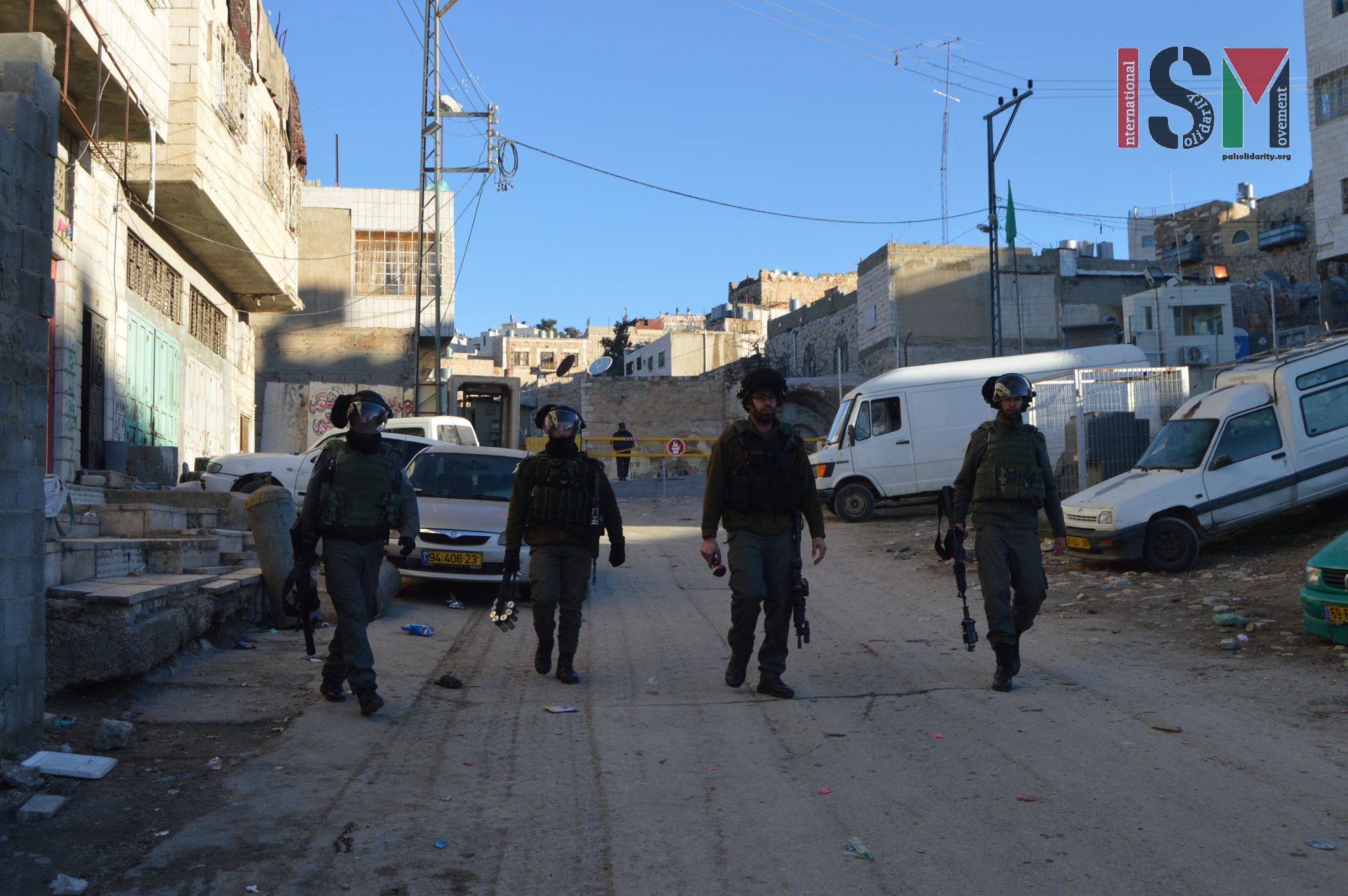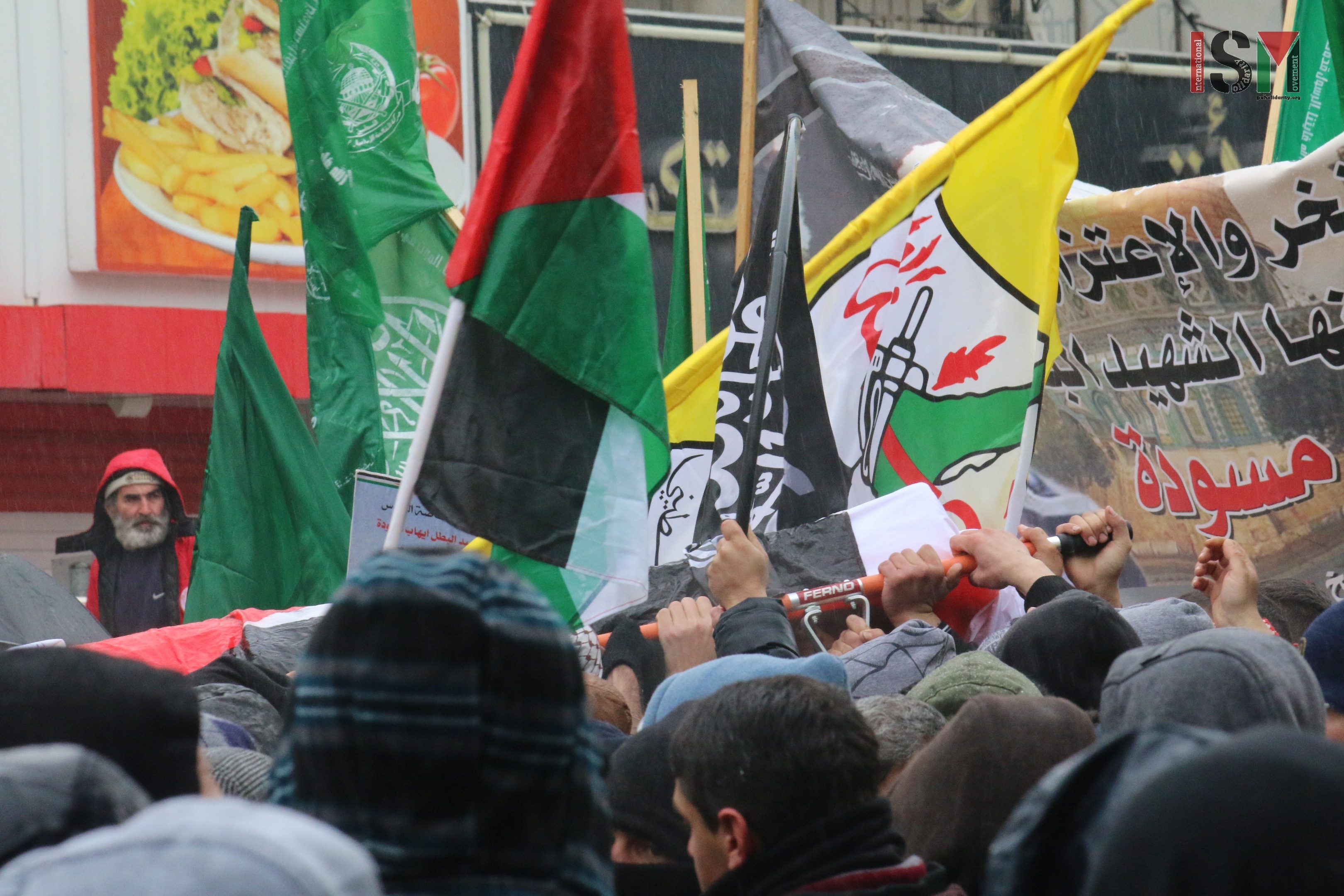Tag: Video
-
Daily violence on the way to school
31st January 2016 | International Solidarity Movement, al-Khalil team | Hebron, occupied Palestine On Sunday, 31st January 2016, Israeli forces fired large amounts of tear gas at school-children on their way to school in occupied al-Khalil (Hebron). In the early morning, as children were walking to their schools located past the Salaymeh checkpoint, three school-boys…
-
Israeli forces rebuild roadblock in Kafr Qaddum
16th January 2016 | International Solidarity Movement, Tulkarem team | Kafr Qaddum, occupied Palestine On the 16th of January, Israeli forces shot a young protester with live ammunition while the villagers of Kafr Qaddum were protesting the theft of their land. The Israeli military also rebuilt a roadblock, restricting the movement of the villagers even further.…
-
14 Palestinians finally laid to rest in occupied al-Khalil
2nd January, 2016 | International Solidarity Movement, al-Khalil team | al-Khalil, occupied Palestine On the 2nd of January 2016, thousands attended the funeral of 14 martyrs in occupied al-Khalil (Hebron). A demonstration following the funeral, against the continued killing of Palestinians with impunity by the Israeli military and Zionist settlers, was attacked by Israeli forces. The new year in the…



